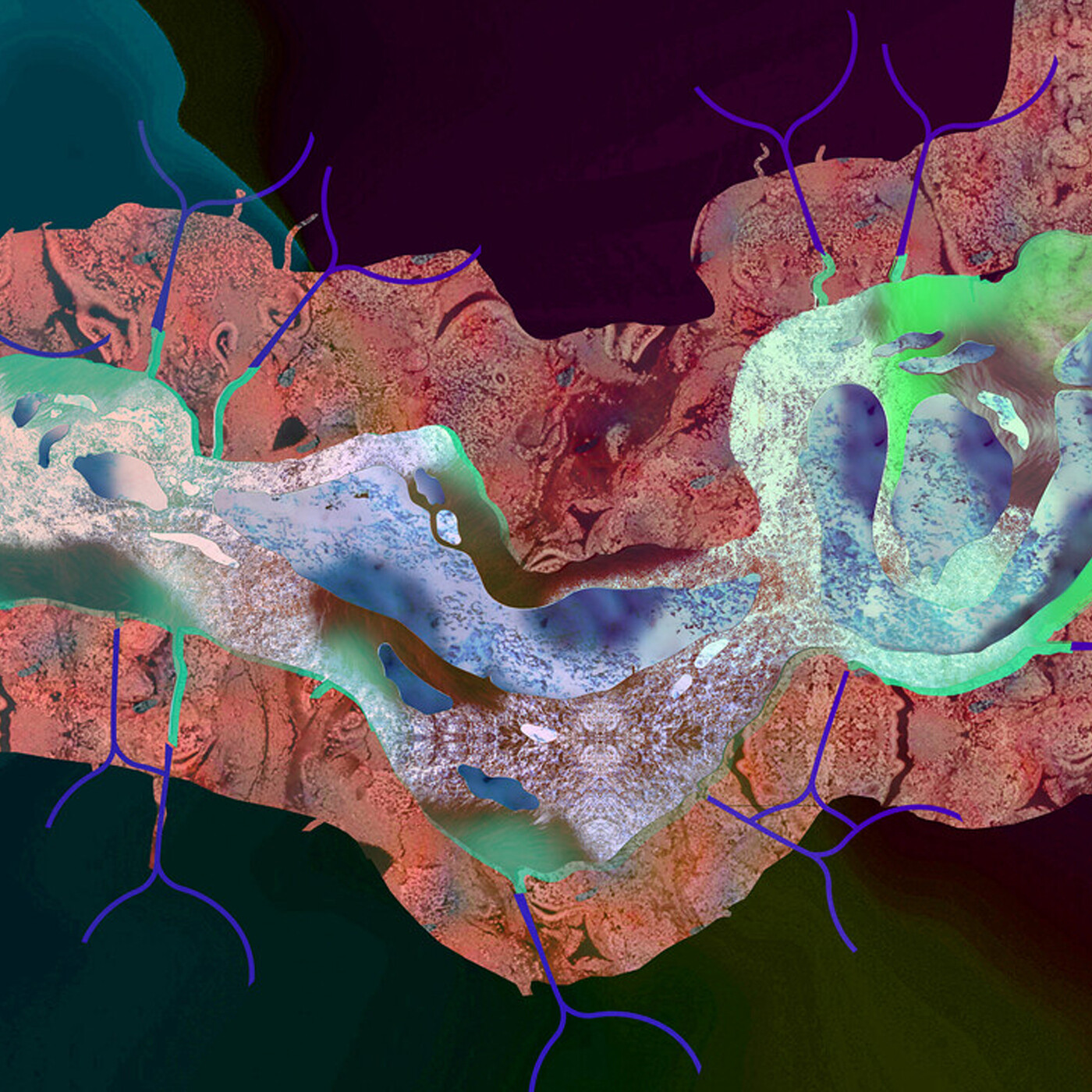Material power resides in the containment and control of flows. Far from avoiding friction, it is precisely the disruptions and systemic imbalances in flow itself that keeps the system running and allows for uneven forms of distribution, accumulation, and advantage. Latency, clogging, inertia, and slowness are instruments to both enact and challenge power.
When artist Vera Frenkel was working on A Challenging Word and a Prescient Work, her sound piece, she heard the unexpected news that a neighbourhood “developer” was demanding that her city cancel its heritage by-law in order to give space for redevelopment, threatening to force her out of her home and studio. Under these painful circumstances, Frenkel wrote a letter to Andrés Jaque, in which she reflected on how neoliberal approaches to hydrocommons, such as Toronto’s coastal line, have manifested polarized economic, social, and political divides. Since the 1980s, and accelerated in the aftermath of the 2008 financial crisis, neoliberalism operates through the redevelopment of cities’ waterfronts, disarticulating through violence the social, architectural, ecological, and productive practices and associations that historically grew there. These waterfronts become sites for money placement, tax evasion, and capital laundering. Citizens who live in these areas encounter segregation, victimhood, and vulnerability. Frenkel’s monumental work ONCE NEAR WATER: Notes from the Scaffolding Archive traces the grief that late neoliberalism and architectural complicity produce in citizens dispossessed of visual and physical access to water. In this related sound piece, Frenkel ultimately reflects on how an economic system that claims universal dynamization operates, in fact, by dispossessing citizens of their mobility and communal relationships.
Ibiye Camp uses Injiri fabric to reflect on how automation forcefully transforms our bodies. Injiri has its origins in another fabric, the Madras, which circulated through the world during the transatlantic slave trade. In Buguma, Nigeria, where part of Ibiye’s family is from, Kalabari craftwomen recondition and re-imagine the cloth by cutting and removing threads to reveal new patterns. The resulting Injiri fabric is worn as wrappers in Kalabari ceremonies. In recent years, the pulled cloth is no longer made by Kalabari women, but by factory machines in China. The female creative position has been displaced by machines, triggering a shift in social roles and spaces in Buguma. In Ibiye’s piece we hear the sound of Kalabari drums communicating stories of goddesses, gods, and spiritual beings. We also hear the traces and ghostly presences resulting from this transformation in the manufacturing process.
Note: This episode was updated July 14, 2021.
